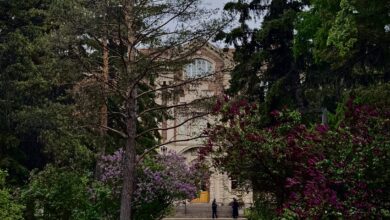 Rachel Narvey
Rachel NarveyA hockey game has raised $1.8 million for clinical trials of a new cancer medication developed at the University of Alberta.
Dr. John Mackey, a professor of oncology in the faculty of medicine and dentistry, is leading the clinical trial of the medication, a capsule called PCLX-001. The money for these clinical trials was raised by Brent Saik, who organizes the World’s Longest Hockey Games. Since Saik lost his father to cancer in 2003, he has used these sporting events to raise over $5.47 million for various cancer research projects. This year’s game raised $1.8 million for the clinical trials and took place in February on a rural property east of Edmonton, lasting a record breaking 252 hours.
Due to COVID-19, players were tested daily, and spectators were not allowed.
Dr. Mackey said the money raised by Saik’s event is going directly to in-human trials of the drug, which will start in Edmonton in May 2021.
“We’ve produced a very high quality compound and put it into a medical form of a capsule that will be administered to patients with advanced cancers,” Dr. Mackey said. “Our goal with the World’s Longest Hockey game is to take those dollars and help pay for the clinical trial activities that are taking place at the U of A and the Cross Cancer Institute here in Edmonton.”
Dr. Mackey said the medication works on multiple types of cancers, including leukemia and lymphoma.
“Different cancers seem to have different sensitivity to the drug,” he said. “Some kinds of lymphoma — a cancer of the immune system — and some kinds of leukemia — a cancer of the blood forming cells in the body — are very sensitive to this.”
According to Dr. Mackey, evidence of the medication curing human cancers grown on mice could mean the medication will be effective on solid tumors, as well as lymphomas and leukemias.
“We’re seeing benefits in breast cancer, lung cancer, colon cancer, and bladder cancer [along with lymphomas and leukemias],” he said. “We’re going to be asking people with those cancers to join the trials as well, and we’re hoping to find out the safe dose of the drug and hopefully some signs that we’re helping people.”
Dr. Mackey mentioned that this drug could help bring more recognition to the university.
“The U of A pursuing a program to develop new drugs is an opportunity for the university to put itself on the map,” he said.
“There’s not many places in the world that have brought new drugs into being.”



